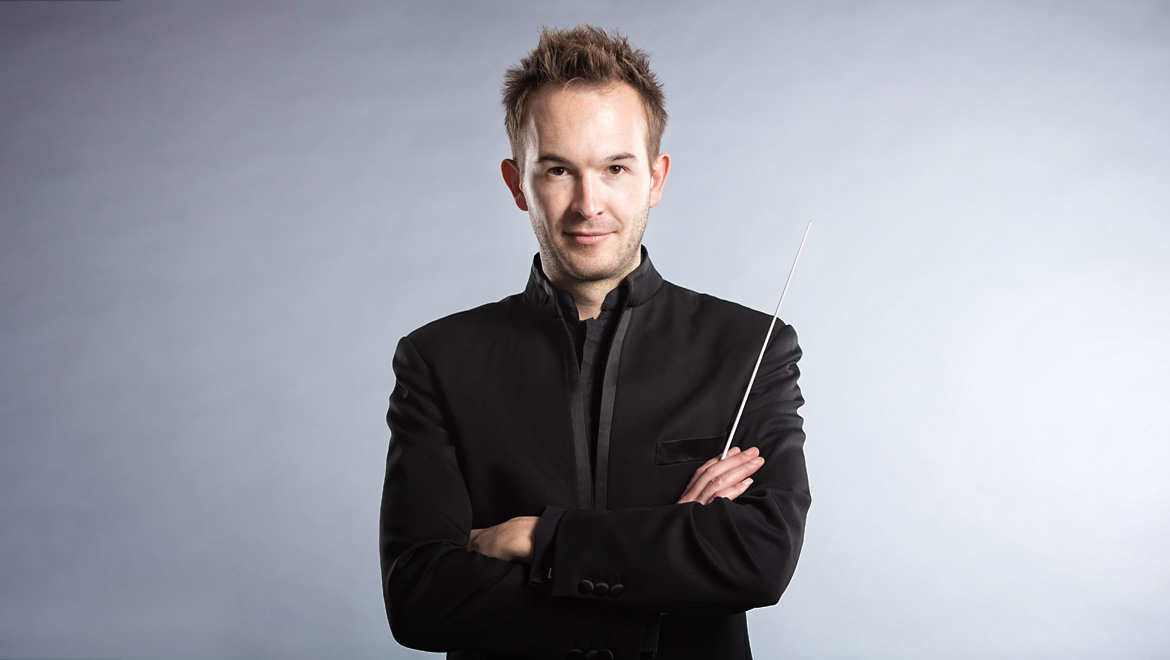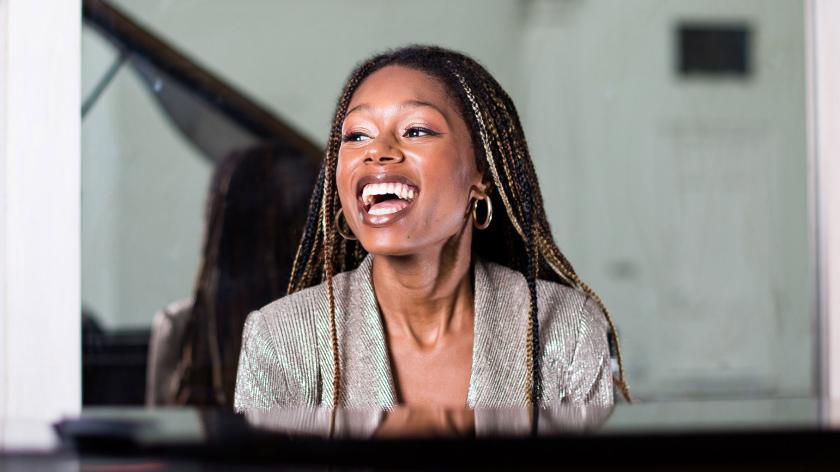As our friends across the pond celebrated Thanksgiving on Thursday, a mix of music from America kicked off the BBC Scottish Symphony Orchestra’s concert, opening with Massachusetts-born composer Carl Ruggles’s Angels for muted brass. Ruggles originally penned the work in 1920 as the second movement of a three-part piece entitled Men and Angels. It was scored for six muted trumpets, but the 1938 revision which was performed on Thursday features four trumpets and muted trombones; it's also transposed down a minor third. Tenderly played by the brass of the BBC SSO, it had a touching, poignant quality to it, under the expressive direction of conductor Andrew Gourlay.
Moving on to the music of modernist composer Ruth Crawford Seeger, her Andante for String Orchestra beautifully metamorphosed from its darkly hued beginnings into music brimming with radiant light. Julia Perry’s 1952 work A Short Piece for Small Orchestra is one of the few pieces by this composer to have been recorded, despite her vast oeuvre. Much of Perry’s early work is for voices, inspired by African American spirituals, though she went on to compose no less than 12 orchestral symphonies, and won the Boulanger Grand Prix for her Viola Sonata. The BBCSSO gave a crisp performance of her short piece, with clear strings, glowing brass, and a spiky sense of rhythm.
The final offering in this all-American first half was Cara Mia Gwen, a 1993 work by Brooklyn-born Alvin Singleton, written in memory of his sister. Gourlay (pictured below by Johan Persson) aptly describes this music as "socially distant". It begins with "bubbles" of instruments playing one at a time. As the piece progresses, each sonic pod gradually layers over one another, though the individual musical ideas are still clearly distinct.  As the stage was reset, the interval featured presenter Jamie MacDougall in interesting interview with the second half’s soloist, pianist Isata Kanneh-Mason. It feels a bit odd to have an interval when you’re in your own home, though at least there’s no queue for the bar! Kanneh-Mason discussed her latest recording, a CD of the piano music of Clara Schumann released on Decca in 2019. As being treated to a couple of tracks, we heard Kanneh-Mason chat about her relationship with the music of both Clara Schumann, and the composer heard in the second half: Ludwig van Beethoven.
As the stage was reset, the interval featured presenter Jamie MacDougall in interesting interview with the second half’s soloist, pianist Isata Kanneh-Mason. It feels a bit odd to have an interval when you’re in your own home, though at least there’s no queue for the bar! Kanneh-Mason discussed her latest recording, a CD of the piano music of Clara Schumann released on Decca in 2019. As being treated to a couple of tracks, we heard Kanneh-Mason chat about her relationship with the music of both Clara Schumann, and the composer heard in the second half: Ludwig van Beethoven.
Beethoven’s Third Piano Concerto opened with soft beginnings, before showing sharp moments of power under Gourlay’s clear conducting. Kanneh-Mason’s fluid playing perfectly illuminated the movement’s many moods, from soft and stealthy, to crisp and in control. Her cadenza wonderfully swooshed from loud and jubilant tones to soft, feathery whispers. Supremely soft timpani signalled the gradual reintroduction of the orchestra, before Gourlay rounded off the first movement with a punch.
The Largo had a dreamy opening, with delicate woodwind and stirring strings. Gourlay brought it to an understated close before swifly moving into the Rondo with its more driven, determined pace. He was incredibly animated on the podium, conjuring zingy, zesty sounds from the orchestra, which made such a full sound it was hard to tell that the players are seated so far apart. Kanneh-Mason played with expert precision, deftly layering the sounds. So much musical excitement was made here, by orchestra, conductor and soloist alike. Though I yearn to be back in a concert hall, it’s a huge privilege to be able to experience these kinds of musical moments from my own front room. And on Thanksgiving Day, that was certainly something to be grateful for.














Add comment